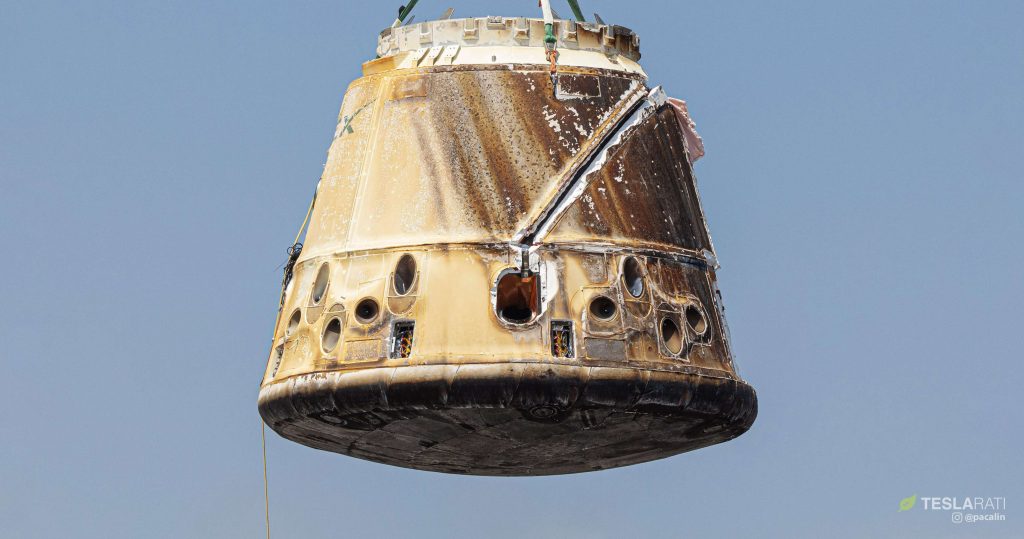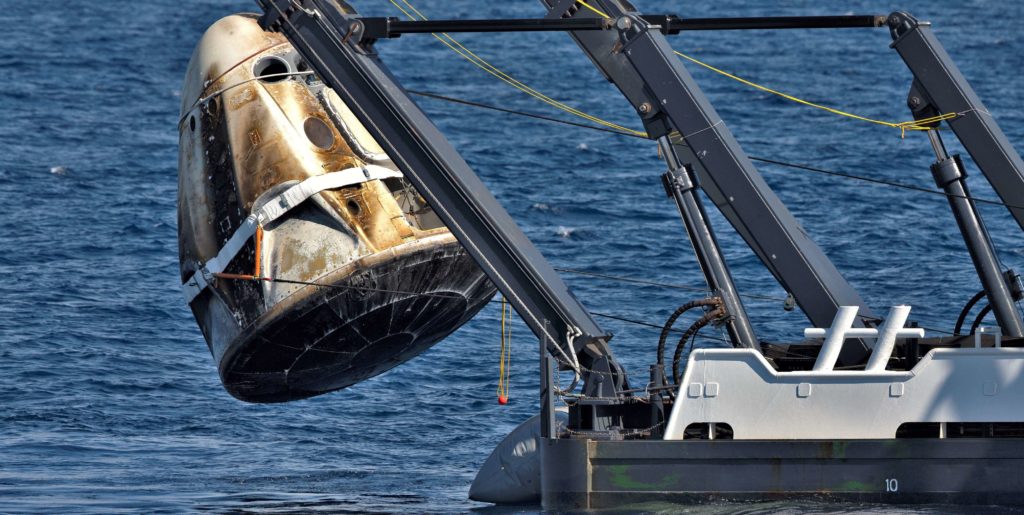SpaceX announced during its CRS-18 Cargo Dragon webcast that the twice-flown orbital spacecraft will feature a handful of ceramic Starship heat shield tiles, meant to flight-test a critical component of the next-generation SpaceX spacecraft.
Extremely unfavorable weather forced SpaceX to scrub today’s scheduled CRS-18 launch around T-30 seconds to liftoff and tomorrow’s backup window (July 25th) doesn’t look any better. Nevertheless, whenever central Florida’s weather chooses to cooperate, the flight-proven Cargo Dragon capsule (C108) will be carrying a little piece of its successor along for the ride, a particularly fitting flight test given that the capsule will also become the first commercial spacecraft to launch to orbit three times.
Although Cargo Dragon’s reusability milestone is an undoubtedly impressive achievement, Starship must necessarily make the spacecraft’s third trip to orbit look like child’s play if it is to realize SpaceX’s dream of radically lowering the cost of spaceflight. To do so, Starship and Super Heavy will need to be the most easily reusable spacecraft and boosters ever built and flown by a nearly infinite margin, given that the ultimate goal is to require little more than careful inspections between suborbital booster launches and orbital Starship launches and reentries.
To accomplish that incredible feat, SpaceX will need to develop, test, and mass-produce thermal protection systems (including heat shields) that are more effective than anything that has flown in space. This is where Cargo Dragon (Dragon 1) and Crew Dragon come into play.


Although this Starship heat shield test comes as a surprise, it’s just a logical extrapolation of SpaceX’s tendency to flight-test hardware in retrospect. SpaceX’s routine and regular Cargo Dragon launches offer an obviously invaluable platform for the company to test new technologies both in orbit and reentry conditions. In fact, SpaceX is the only entity – government or commercial – with a reusable spacecraft capable of returning appreciable amounts of cargo from space to Earth’s surface.
If Cargo Dragon capsule C108 continues its successful record of orbital missions and recoveries, SpaceX will be able to recover Starship’s prototype ceramic heat shield tiles perfectly intact and thus have access to orbit- and reentry-tested hardware that should provide invaluable data for Starship. It’s unclear where exactly ceramic heat shielding would be used on Starship or if this means that the spacecraft’s transpirationally-cooled steel tiles did not pass muster, but CEO Elon Musk will hopefully provide additional details in a presentation later this month or early next.
Of note, the Starship heat shield test tiles appear to be installed near what is effectively the leading edge and thus the most stressed section of the heat shield. Ultimately, it’s extremely impressive that NASA has accepted this significant modification and concluded – alongside SpaceX – that the added risk of the prototype tiles is near-zero.

Check out Teslarati’s newsletters for prompt updates, on-the-ground perspectives, and unique glimpses of SpaceX’s rocket launch and recovery processes.

<!–
–>
var disqus_shortname = «teslarati»;
var disqus_title = «SpaceX testing ceramic Starship heat shield tiles on flight-proven CRS-18 Cargo Dragon»;
var disqus_url = «https://www.teslarati.com/spacex-starship-heat-shield-cargo-dragon-testing/»;
var disqus_identifier = «teslarati-109972»;

